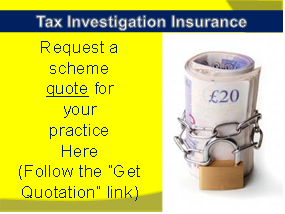It seems that public sector IT contractors in the UK are starting to down tools across a range of projects ahead of the new tax regime in April, leaving numerous projects hanging in the balance.
Multiple sources have been in touch with The Register to report that professionals are leaving in droves rather than face the IR35 tax changes. From April the responsibility for compliance with the intermediaries legislation will be the responsibility of the public body or recruitment agency.
A survey by the site found that 90% of UK government IT contractors will rebel against proposals by HMRC to clamp down on self-employed workers not paying the correct employment taxes.
The government has responded to a petition asking to scrap the IR35 changes. It said it recognises concerns that determining whether or not the rules apply can be administratively demanding.
"In response to this, HMRC are developing an online tool that will help public sector bodies to determine whether or not the rules apply.”However, the live date for that tool won’t be until March, by which time many contractors are expected to have left the public sector!
Tax does have to be taxing.
Professional Cover Against the Threat of Costly TAX and VAT Investigations
Insurance to protect you against the cost of enquiry or dispute with HMRC is available from several sources including Solar Tax Investigation Insurance.
Ken Frost has negotiated a 10% discount on any polices that may suit your needs.
However, neither Ken Frost nor HMRCISSHITE either endorses or recommends their services.
What is Solar Tax Investigation Insurance?
Solar Tax Investigation Insurance is a tax-fee protection service that will pay up to £75,000 towards your accountant's fees in the event of an HM Revenue & Customs full enquiry or dispute.
To find out more, please use this link Solar Tax Investigation Insurance

HMRC Is Shite (www.hmrcisshite.com), also available via the domain www.hmrconline.com, is brought to you by www.kenfrost.com "The Living Brand"


Oh, the irony. The usual great planning from HMRC.
ReplyDeleteFFS, HMRC had a definition of self employment 30 years ago and I passed as self employed mainly because the predecessor of the DWP looked at the contract and said in their view I was self-employed.
ReplyDeleteWTF are they doing still arguing about it now?!
FWIW I think the govt. 100% caused the problem by allowing the tax rate on companies to diverge from income tax on sole traders, giving an artificial incentive to form a company and fiddle your taxes - er, ahem, engage in strategic tax planning.
Ah yes, paying in dividends to avoid NIC for example. Not illegal but immoral.
DeleteThis comment has been removed by the author.
ReplyDeleteGordon Brown changed the way dividends were taxed back around about the year 2000, and also temporarily brought in a Nil rate band for corporation tax at a similar time. The combination of these meant that someone who had been earning up to around say £20,000 as self employed and probably paying around £3,00 tax, could incorporate and pay no tax!
ReplyDeleteThough they have now done away with the nil rate band for CT, and blamed the Accountants for exploiting a loophole, the tax treatment of dividends remained and corporation tax rates started to decline. Combined with the removal of compulsory audit for all Limited Companies then it became an obvious move to incorporate as that had benefits in itself and you also paid less tax.
So people are simply behaving in line with the tax code. It took until last year to introduce a further tax on dividends, though that is also clumsy and has knock on effects. Why HMRC and the Government continue to insist on using the clumsy hammer that is IR35 is nonsensical.
Considering many of HMRCs previous ExCom members were paid through a Managed Service Company (even though their basic salary was greater than the Prime Minister), was and continues to be an absolute decrease.
ReplyDeleteI'd also review HMRC staff who have London as their home office (thus attracting the London increase) but live outside of London and claim for hotels, expenses etc when visiting London (i.e. their home office). If this was a normal PAYE Taxpayer, any such expenses would be discounted or for at least be taxable.